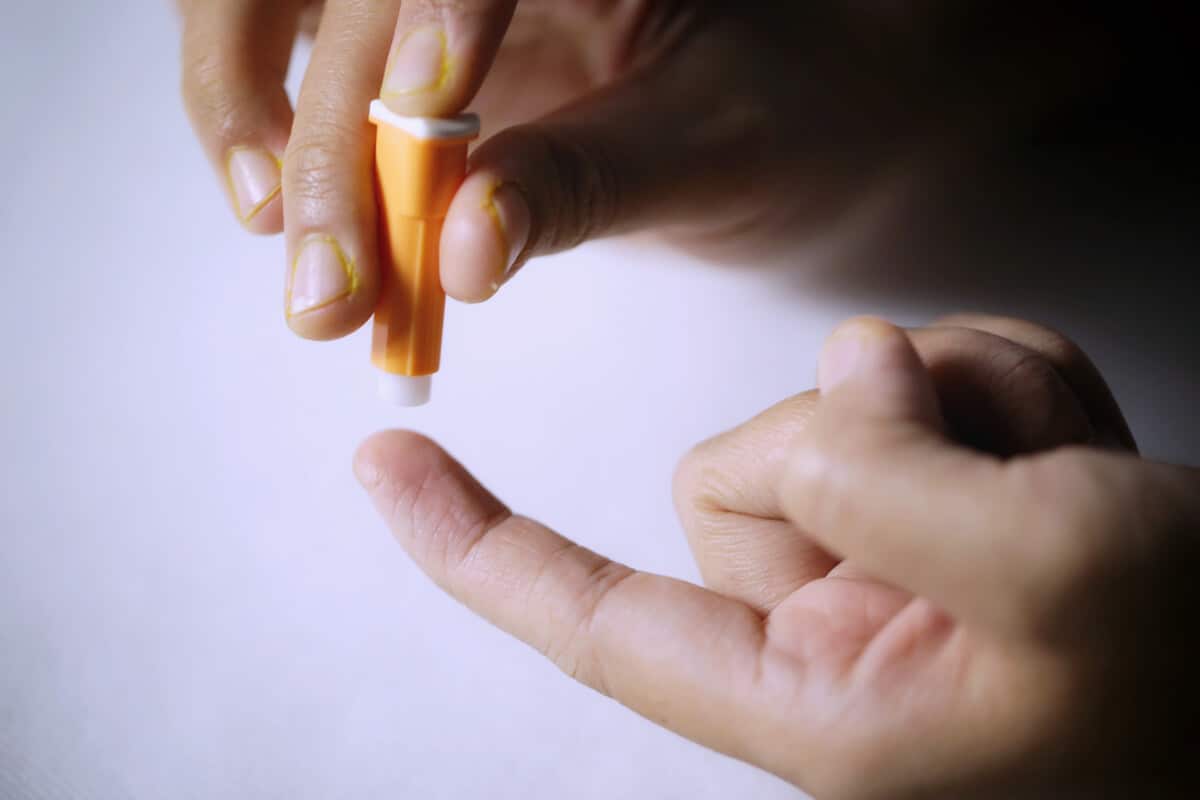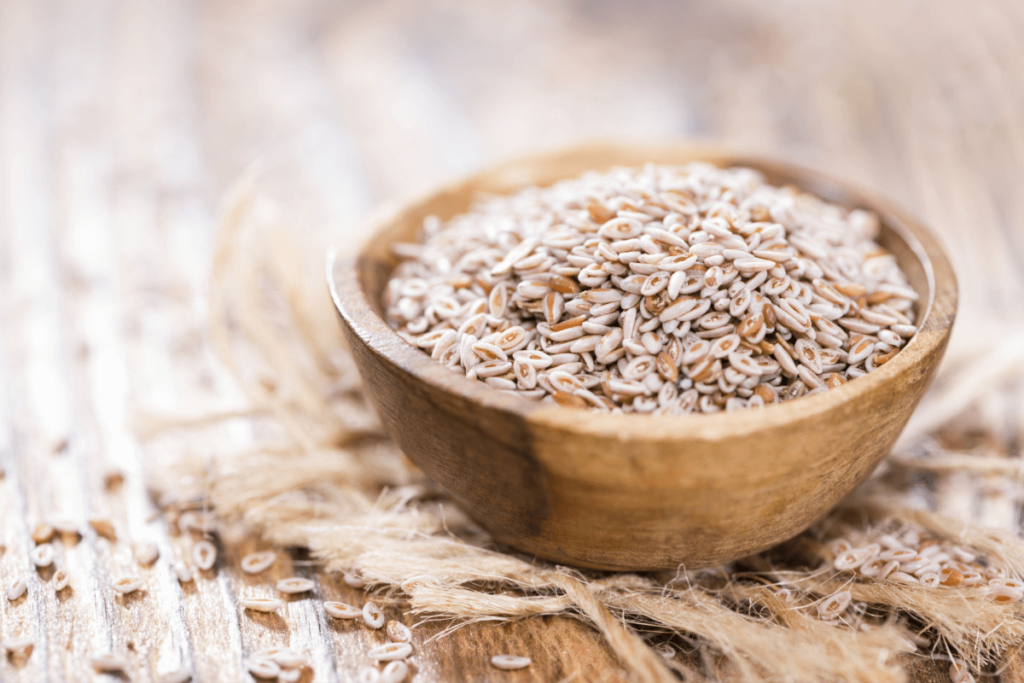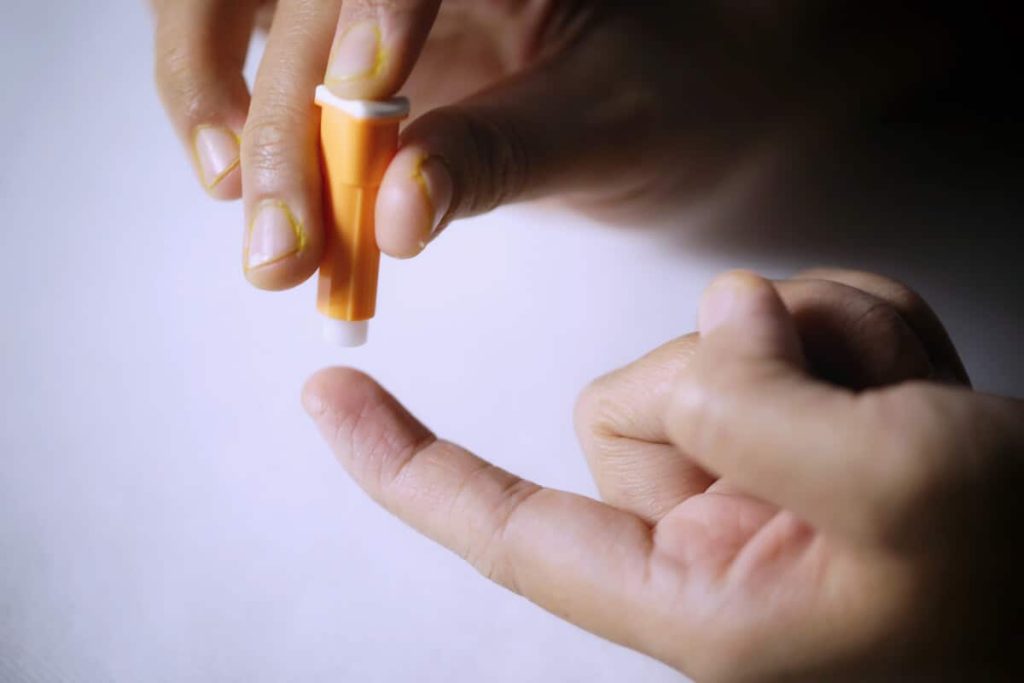In 2017, the National Diabetes Statistics Report reported that the total number of individuals with diabetes was over 30 million in the United States, accounting for 9.4% of the population. Nearly one-quarter of these cases were undiagnosed. The most prevalent form of diabetes, type 2 diabetes, accounted for 90-95% of all cases. (5) Similar statistics were reported in Canada, with 7.3% of the population being diagnosed with diabetes in 2017. (30) Diabetes prevention and management may involve both lifestyle modification and medication to reduce complications of the disease and risk of mortality. (7) Read on to learn more about the best blood sugar supplements to support diabetes naturally.
What is diabetes?
Diabetes is a metabolic disorder characterized by elevated blood glucose (sugar). Diabetes can occur as a result of insulin resistance, insufficient insulin secretion, or both. Insulin resistance, a state in which the body’s cells resist the action of insulin, or insulin deficiency resulting from insufficient secretion, results in hyperglycemia, mineral and electrolyte imbalances, and irregular metabolism of lipids and protein. (29) Insulin is a hormone that regulates glucose, lipid, and protein metabolism in several ways, including by stimulating the uptake of glucose in muscle for energy. (15)
Outlined below are three primary types of diabetes, which include gestational, type 1, and type 2 diabetes. (7) Certain forms of diabetes may also occur as a result of genetic defects in beta cells or insulin function, endocrine diseases, and/or exposure to certain medications or chemicals. (29)
Gestational diabetes
Gestational diabetes is characterized by glucose intolerance that is recognized and diagnosed during pregnancy. In most women with the condition, signs of gestational diabetes occur during the third trimester. (29)
Type 1 diabetes
Type 1 diabetes (T1D), also known as juvenile diabetes, is an autoimmune condition in which the immune system destroys beta cells of the pancreas. The beta cells are responsible for producing, storing, and releasing insulin, so their destruction typically leads to insulin deficiency. It is primarily diagnosed in children or adolescents but can occur at any age. (23)
Type 2 diabetes
Type 2 diabetes mellitus (T2DM) is characterized by hyperglycemia, insulin resistance, and relative impairment in insulin secretion. In individuals with T2DM, the body attempts to release more insulin to help regulate elevated blood sugar levels. However, insulin resistance prevents glucose from entering cells and blood glucose levels may remain elevated. This leads to beta cell failure over time and insulin deficiency progresses. In T2DM, metabolic syndrome is often present. Metabolic syndrome is a group of symptoms including hypertension, vascular endothelial dysfunction, high triglycerides, and low high-density lipoprotein (HDL) cholesterol levels. (29)
Type 2 diabetes is the most prevalent form of diabetes, accounting for 90 to 95% of all cases. (5) Unlike T1D and gestational diabetes, T2DM can be prevented or delayed through lifestyle modifications, which can help prevent complications of the disease. (21)

Causes and risk factors for type 2 diabetes
There are a number of causes and risk factors for type 2 diabetes, including:
- African American, Alaska Native, American Indian, Asian American, Hispanic/Latino, Native Hawaiian, or Pacific Islander descent
- Age 45 or older
- Depression
- Family history of diabetes
- High blood pressure
- High levels of triglycerides
- History of gestational diabetes, heart disease, or stroke
- Low levels of high-density lipoprotein (HDL) cholesterol
- Overweight or obesity
- Polycystic ovary syndrome (PCOS)
- Sedentary lifestyle (21)
 Individuals with high blood pressure, as well as those who are overweight or obese and greater than 45 years old have a greater risk of developing type 2 diabetes.
Individuals with high blood pressure, as well as those who are overweight or obese and greater than 45 years old have a greater risk of developing type 2 diabetes.Type 2 diabetes symptoms and complications
The signs and symptoms of T2DM include:
- Being more prone to infections
- Blurred vision
- Fatigue
- Healing more slowly
- Increased thirst and hunger
- Increased urination
- Tingling or numbness in hands or feet
- Unexplained weight loss
- Very dry skin (6)(24)
If left unmanaged, type 2 diabetes may also lead to certain complications, including:
- Birth complications with gestational diabetes
- Cardiovascular disease
- Dental diseases
- Nephropathy
- Neuropathy
- Peripheral artery disease (PAD)
- Retinopathy
- Stroke (26)
Top Blood Sugar Supplements
In order to address and manage type 2 diabetes, it is essential to support balanced blood glucose levels. Target blood glucose levels typically range from 80 to 130 mg/dL before a meal and less than 180 mg/dL two hours after the start of a meal. (20) Research has shown that the nutrients and botanicals included below may help improve blood glucose levels.
1. Berberine
Berberine is a naturally occurring compound found in several plants commonly used in Ayurvedic and traditional Chinese medicine. The compound is theorized to possess several therapeutic benefits, including anti-inflammatory, anti-lipidemic, and antidiabetic properties. Berberine has been found to regulate glucose metabolism both in vitro and in vivo. (34)
A meta-analysis of twenty-seven randomized controlled clinical trials with a total of 2569 patients found that berberine supplements paired with dietary and lifestyle changes was more effective at reducing blood sugar than diet and lifestyle modifications alone. Additionally, the analysis found that berberine increased the effects of oral diabetes medication. (14)
Another study involving 36 adults with newly diagnosed type 2 diabetes found that taking the blood sugar lowering effects of berberine were comparable with metformin, a oral diabetes medication. (34)

2. Chromium
Chromium, an essential, naturally occuring mineral, may help lower blood sugar levels in those with type 2 diabetes. Chromium is thought to provide hypoglycemic effects by increasing insulin sensitivity. (16) A meta-analysis published in 2014 found that chromium lowered fasting blood sugar levels and glycosylated hemoglobin A1c (HbA1c), a test that provides an average of blood sugar control over a six to twelve week period in patients with diabetes. However, chromium supplementation was not found to have blood sugar lowering effects in people without a pre-existing health condition. (2)
3. Cinnamon
Cinnamon, a common household spice, has been used in traditional herbal medicine for hundreds of years. In vitro studies have shown that cinnamon may act as an insulin mimetic by increasing insulin activity and signaling for cells to intake glucose. Furthermore, a meta-analysis of ten randomized controlled trials found that 120 mg to 6 g per day of oral supplemental cinnamon consumption for four to 18 weeks decreased fasted blood sugar levels. (1)
4. Curcumin
Curcumin is the primary active ingredient found in the turmeric plant. A randomized, double-blind, placebo-controlled trial involving 72 patients with polycystic ovary syndrome (PCOS) found that supplemental curcumin decreased fasting blood sugar levels. (11) Other studies have also found that post-meal blood sugar levels were significantly lower in healthy individuals who consumed curcumin. (32)
There are several theories as to how curcumin reduces blood sugar levels. These include curcumin’s inhibitory effects on glycogenolysis, the breakdown of glycogen into glucose, and gluconeogenesis, the synthesis of glucose from non-sugar sources. (10)(11) Additionally, curcumin has also been found to increase cellular glucose uptake, thus lowering blood sugar. (12)
5. Vitamin D
Vitamin D is an essential vitamin to humans produced from exposure to sunlight and consumed through some dietary sources. There has been increasing evidence that due to its role in blood sugar control, a lack of vitamin D may be a risk factor for developing type 2 diabetes. (18)
A study conducted in 2011 examined whether vitamin D supplementation helps with blood sugar control. The researchers discovered that vitamin D increased the activity of the insulin-producing cells of the pancreas, and thus helped lower blood sugar. (17) Another study involving 100 patients with type 2 diabetes found that fasting blood sugar and HbA1c significantly decreased after supplementing with vitamin D for two months. The study concluded that vitamin D supplementation may be beneficial for those with type 2 diabetes because it improved glycemic control. (19)
6. Psyllium husk
Psyllium husk comes from the seeds of the Plantago ovata plant. The active component of the husk is called arabinoxylan, a highly branched carbohydrate. (33) Psyllium husk is a water-soluble fiber commonly used to treat constipation. (28) When psyllium is consumed, it forms a gel and slows the rate at which digestive enzymes mix with chyme (partially digested food) in the digestive tract. This slows the absorption of glucose, which may result in lower blood glucose following meals. Other beneficial effects of psyllium husk include lowering cholesterol levels and reducing symptoms of diarrhea and IBS. (13) Psyllium husk was found to be well-tolerated in type 2 diabetes patients. (27)

The bottom line
Dietary and lifestyle modifications are key to the management and treatment of hyperglycemia and type 2 diabetes. Dietary supplements, such as berberine, chromium picolinate, and psyllium husk, may help regulate blood glucose. A protocol using natural supplements can be used therapeutically on its own or as an adjunct to existing treatment.

